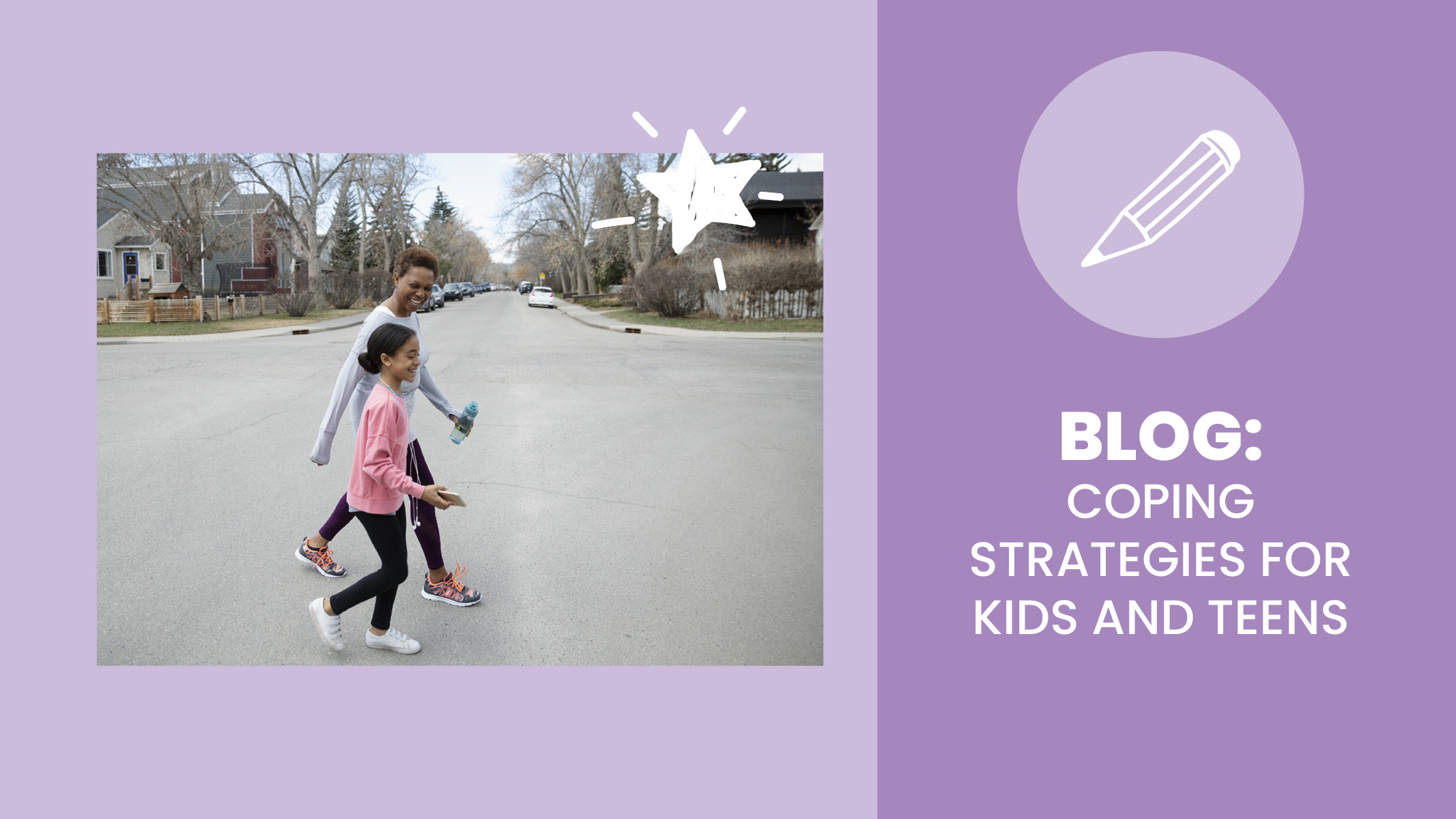Teaching kids and teens to identify and label their feelings and emotions is important. But once they do that, how can kids cope with these overwhelming feelings?
Coping strategies are individual ways kids can adjust and handle any stressful or overwhelming situation, and they can be unique to everyone. The list below includes various ways kids and teens can cope with stressful or overwhelming situations in their lives. Before trying out these coping strategies, be sure to read our expert-backed advice on how to introduce coping strategies to kids and teens.
Movement and Breathing
- Take a walk or go for a bike ride outside to get some fresh air.
- Practicing yoga gives your body and brain the chance to move and practice mindfulness simultaneously. Use the Grow Your Flow yoga cards to get started learning different poses or try the fitFlow Activity for an interactive practice that takes you through multiple poses.
- Turn on some music and dance it out.
- Bounce or squeeze a stress ball.
- Play a movement game like tag, hide and seek, or red light, green light. Get more inspiration for indoor activities here.
- Practicing some deep breathing techniques.
Resting
- Take some quiet time in a cozy spot.
- Read a book.
- Take a shower or bath.
- Practice mindfulness exercises. To get started, download the Mindful Moments Card pack for 20 free mindfulness activities.
- Listen to calming music.
- Do a body scan. Close your eyes, get comfy, and squeeze the muscles in your feet. Hold your muscles tight, then release and relax. Move on to other parts of your body!
- Get some fresh air and notice nature as you sit. What’s in the sky? How does the air feel? What can you hear?
Get Creative
- Color, draw, paint, etc.
- Play an instrument.
- Journal your thoughts and feelings. Dumping any “clutter” from your mind can help you find a sense of calm. Check out these journaling activities for teens to get started.
- Play with fidget or sensory toys like Play-Doh, rice, or shaving cream.
- Try crafting. You can create a scrapbook filled with good memories or try ceramics, knitting, or origami. The options are endless!
Social
- Call or video chat a friend or someone you love. To foster conversations, try using these Chit Chat Cards.
- Play a board game or cards with family or friends.
- Spend quality time with a pet.
- Talk about your feelings with someone you trust.
Mindset
- Think of 1 positive thing from your day.
- Name 3 things you’re grateful for. Or write a thank you note to someone you’re grateful for.
- Empower yourself by practicing positive self-talk. You can use an activity book like The Power of You or try phrases like, “I am brave!” “I am kind!” “I am important!” “I can do hard things.” “I am a positive influence on the world.” “My stressful thoughts will not ruin my day.” “I deserve to live a happy and healthy life.” or “I trust that good things will find me.”
- Engage in problem-solving. Focusing on what you can control is a great place to start.
- Think positive thoughts. Ask yourself what makes you happy. What are you looking forward to? What makes you laugh?
- Practice grounding exercises like focusing on your 5 senses or take time to be present and observe your surroundings.
- Do a feelings check-in: Use the How I Feel Activity to encourage kids to explore how they feel and learn to positively cope.
To see real kids using some of these coping strategies, watch this short video series.
Even though this list gives many different examples of coping strategies, there are certainly others that can work effectively for your child. Finding healthy coping strategies is about what works best for your child at their given age.
While coping strategies are useful, it’s important to remember the impact of healthy habits, too. Maintaining routines for your child that consist of quality sleep, nutritious foods, and plenty of physical activity can be key to helping them feel safe and secure even in times of stress.
If overwhelming feelings are taking over a child or teen’s home, school, or social life, encourage them to talk with someone they trust. Or if you, your child, or someone you know is experiencing thoughts of self-harm or suicide or just need support now, call or text 988 to reach a Suicide & Crisis Lifeline available 24 hours a day, seven days a week or chat at 988lifeline.org.
Ready for More? You Might Also Like:
Kids Coping Strategies Poster Pack
Coping With Childhood Stress
Cheat Sheet for Caregivers: Coping with BIG Feelings and Anxiety


